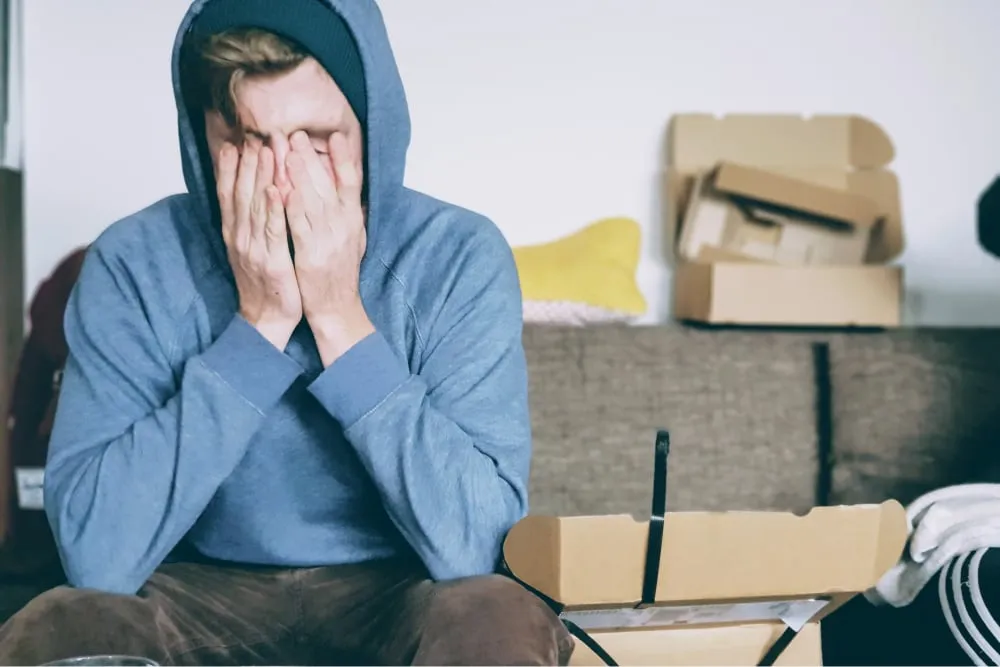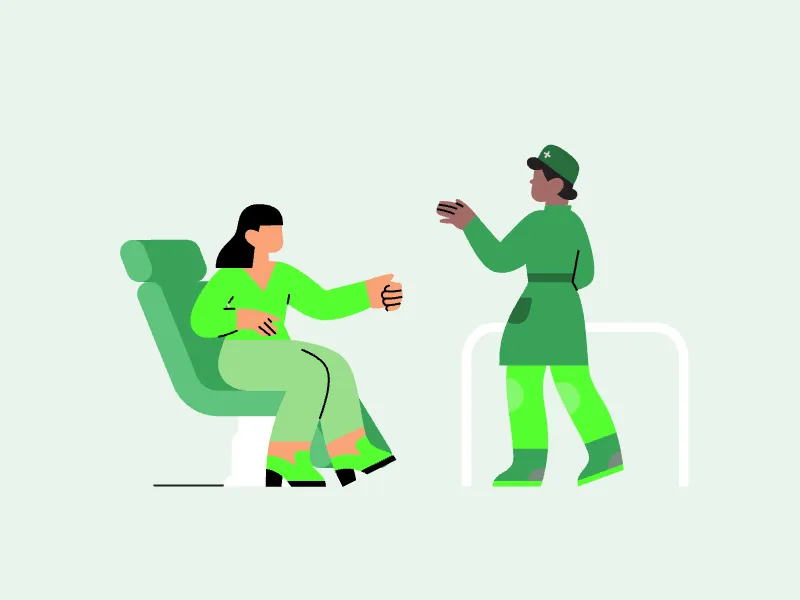What is anxiety eating?
Also known as emotional eating, anxiety eating involves using food as a coping mechanism to make you feel better. (1)
anxiety eating usually has nothing to do with physical hunger and everything to do with suppressing or easing unpleasant emotions, or dealing with uncomfortable situations. However, the relief gained from eating in response to an emotional need is often temporary.
What are the causes of anxiety eating?
Emotional regulation
You might be wondering: “Why do I want to eat when I’m anxious or stressed?” When you’re anxious your adrenal glands release the “stress hormone” cortisol. This may stimulate an increase in appetite and cravings for fatty, salty, and sweet foods.
These urges aren’t the result of an empty stomach or low blood sugar. Instead, in response to cortisol, your brain is signaling you to eat, to prepare for a potentially distressing feeling or situation. (1) Once you have satisfied your cravings, your anxiety eases off, cortisol levels return to normal, and the urge to eat subsides.
If this cycle continues, your emotions can become tied to your eating behaviors that seeking out food in response to anxiety can become an unconscious pattern. (2)
Food can also serve as a distraction when you're worried about a future event or ruminating on an argument, for example. Instead of confronting your current concerns, you might distract yourself from them by reaching for your favorite snack.
Escape from self-awareness
The “escape” theory of anxiety eating applies primarily to chronic dieters who often attempt to engage in dietary restriction that leaves them prone to episodes of overeating.
Chronic dieters are believed to be particularly vulnerable to negative feelings about themselves, which leads to higher levels of depression and anxiety. To relieve the awareness of these feelings about themselves, they switch their focus to something that immediately stimulates a more positive emotion, such as food. (3)
However, it’s important to also remember that there is a known link between physical and metal restriction when it comes to food. This connection is why physical restriction through dieting can trigger compensatory eating, because of the body’s mechanisms to get enough food to survive, and that mental restriction increases the emotional importance of food.
Trade-off
A person may find the feeling of anxiety intolerable, and may have learned that eating in response to this anxious emotion is soothing. This means that even though that person may find their eating episodes cause them feelings of guilt or disappointment, the trade-off of switching out anxiety for these new emotions is found to be acceptable. (3)
You might also be interested in
5 ways to cope with anxiety eating
Anyone who has dealt with anxiety knows how painful, paralyzing, and frightening it can be. Many people will do whatever it takes to avoid anxiety or to reduce its intensity and for some people that includes eating in the absence of hunger to calm or numb out anxiety. It is important to be aware of your coping mechanisms, especially those involving food, as it may help you find alternative coping strategies for stress or anxiety, if desired.
Find other ways to deal with your emotions
When your anxiety is spiking and you have the urge to eat for comfort there are alternative strategies that you can use to manage your anxiety. Some ideas to try include: (1)
- Listen to a guided meditation
- Read a chapter of a book or do a crossword puzzle
- Go for a short walk
- Practice mindful breathing for a few minutes
- Keep your hands busy with an activity like knitting, drawing, or coloring with an adult coloring book
- Write down your feelings in a journal
- Call a friend or family member
- Engage in a relaxing yoga practice
Suggested alternative: Make sure you are eating regularly and adequately.
Eating enough food to meet your body's needs and eating a variety of foods can both help reduce anxiety eating. Restricting food or cycles of restriction and binging can increase anxiety overall, and labeling certain foods as off limits can increase the likelihood of eating them compulsively during times of stress.
If you are feeling drawn to food during times of anxiety, it is helpful to check in with yourself to see if you are experiencing physical hunger cues, or if it has been several hours since you last ate. If it is time to eat, and having an intentional meal or snack does not alleviate anxiety, try exploring other coping skills like those listed above.
Get support
You’re more likely to engage in anxiety eating if you don’t have a good support network. Confide with family and friends about your issues with anxiety and food. If you’re not ready for that step, consider joining a support group, where you can speak freely about your feelings without judgment. Having a support buddy you can call or text when needed is a helpful resource for recovery.
Get active
Exercise can be a positive coping skill to relieve stress, tension, and anxiety. Whether you go for a run or a swim or lift some weights at the gym, endorphins are released, which are neurotransmitters that bind to opiate receptors in your brain. (6) This increases feelings of pleasure and well-being, calming your mind.
Exercise is one of many possible coping skills that can be used to reduce anxiety, and is not appropriate for everyone. Individuals in recovery from eating disorders should communicate with their care team about if and how much exercise they can safely engage in. Eating enough overall and resting adequately are also important for everyone using physical activity as part of their anxiety management.
Learn from setbacks
If you have an episode of eanxiety eating, don’t beat yourself up over it. Anxiety is a difficult emotion to cope with, and learning to use supportive coping skills to respond to it is an ongoing process. Try to learn from the experience and think about what you could do differently next time.
Focus on the positive changes that you have been making, whether that’s working through your issues with anxiety in therapy, mindfulness activities, or becoming more aware of what triggers your anxiety and responding to it intentionally. Give yourself credit for making these changes and always be proud of your progress.
When to seek help for anxiety eating?
If you or your loved one have tried self-help options, but are still finding it difficult to manage anxiety eating, it may be time to seek professional help.
Behavioral therapies - like cognitive behavior therapy (CBT) and dialectical behavior therapy (with a mental health professional)can help you understand why you resort to food in times of emotional stress, and teach you healthier coping skills. You’ll also learn how to better understand why you’re feeling so anxious in the first place, and what can be done to reduce your levels of stress.
Therapy will also help you discover if there is a more serious underlying problem, such as an eating disorder. For example, studies have shown that those with binge eating disorder are more likely to also experience symptoms of anxiety when compared to the general population. (4)






























